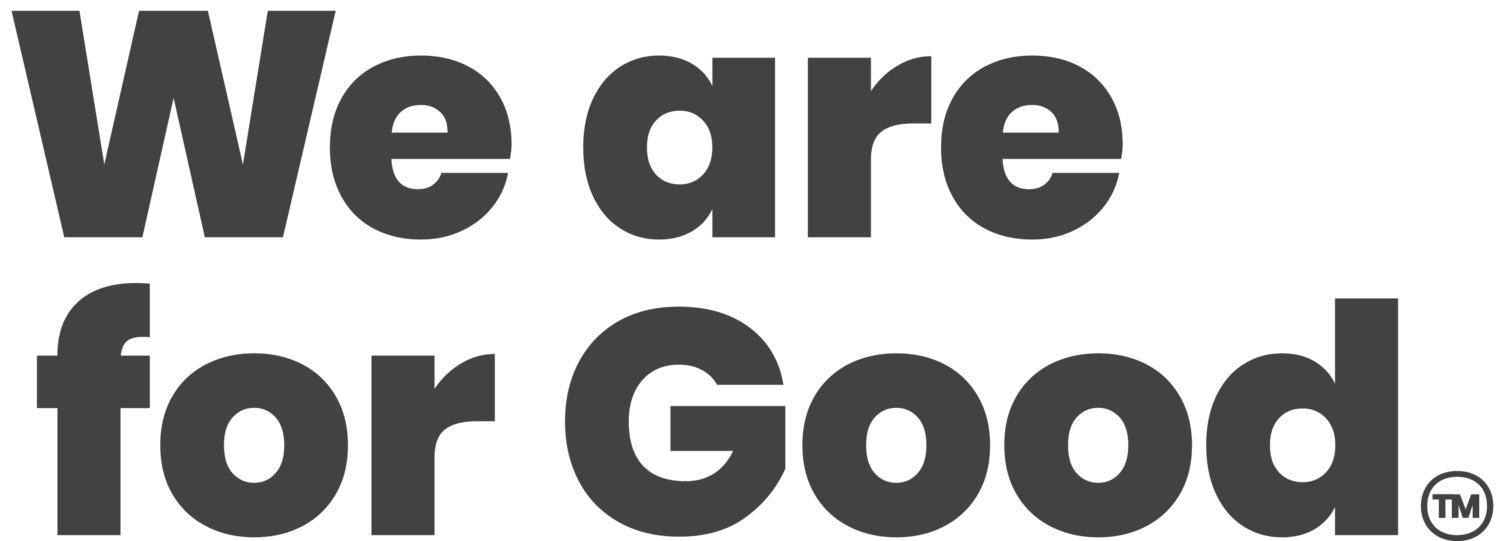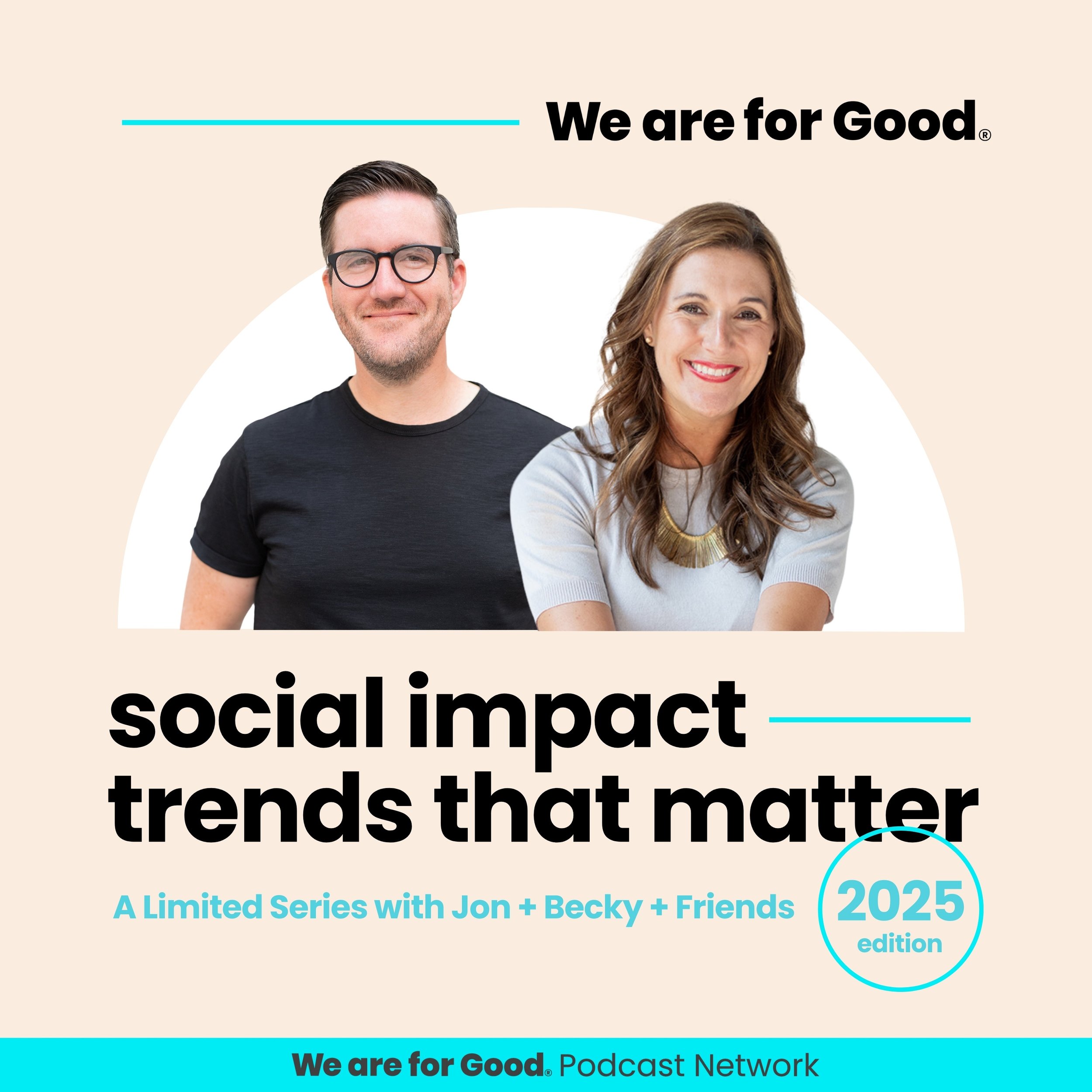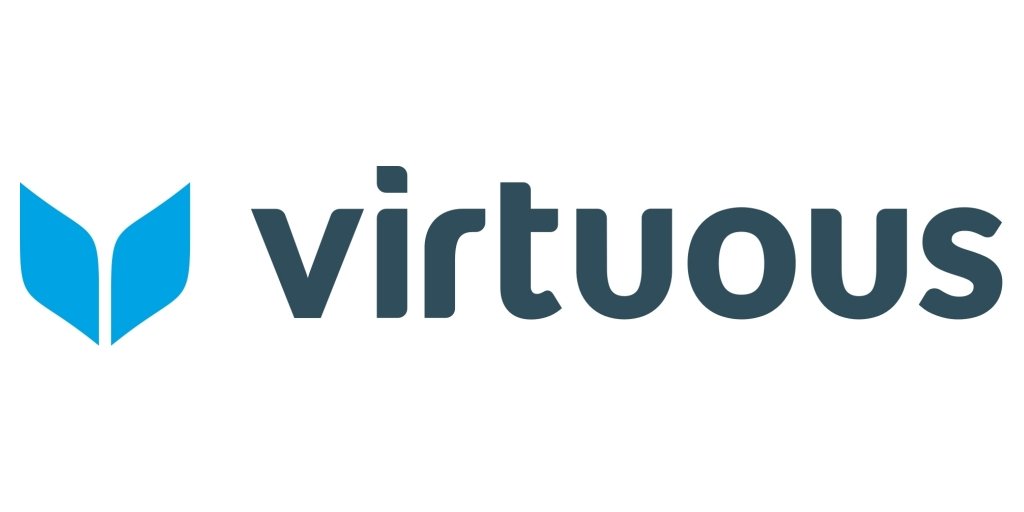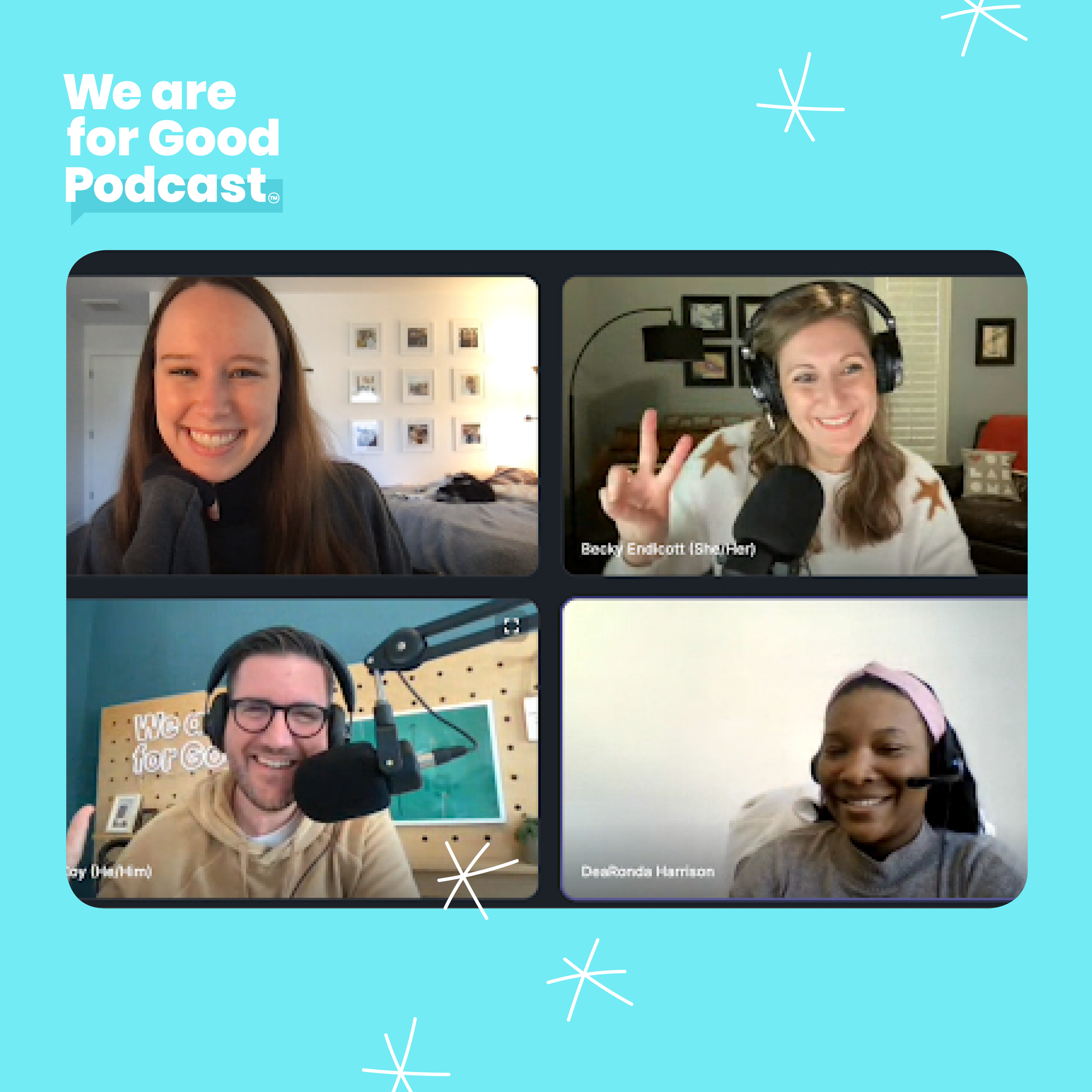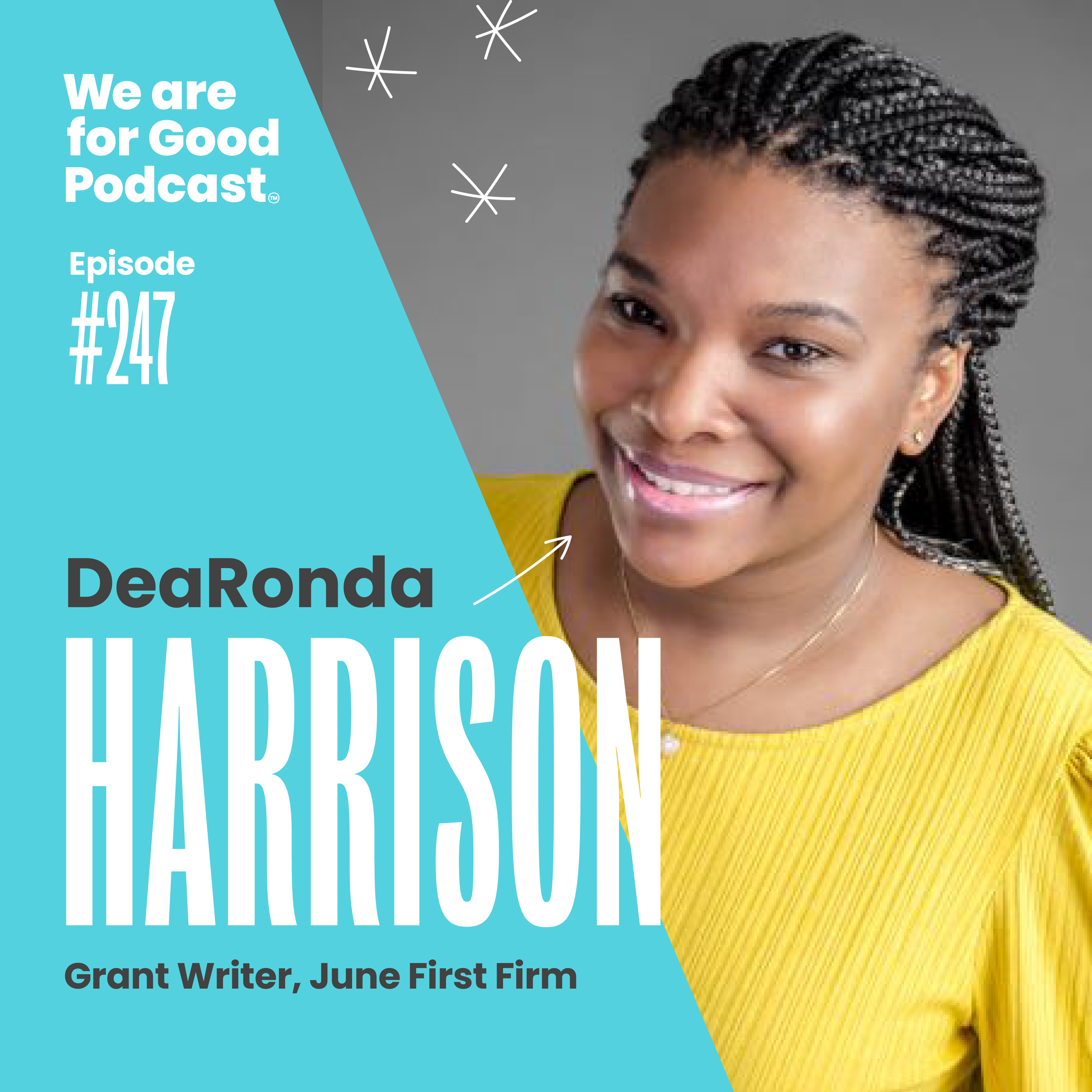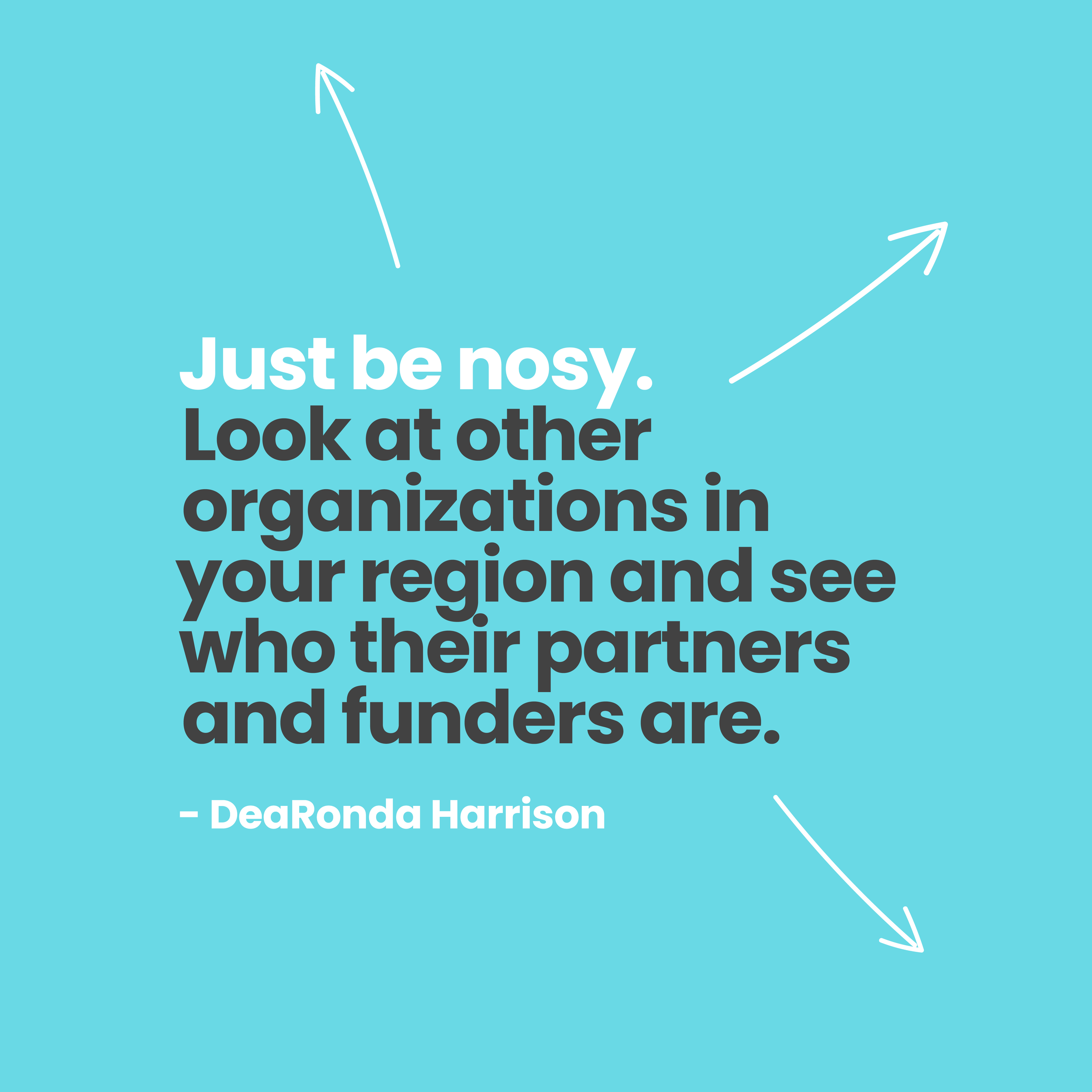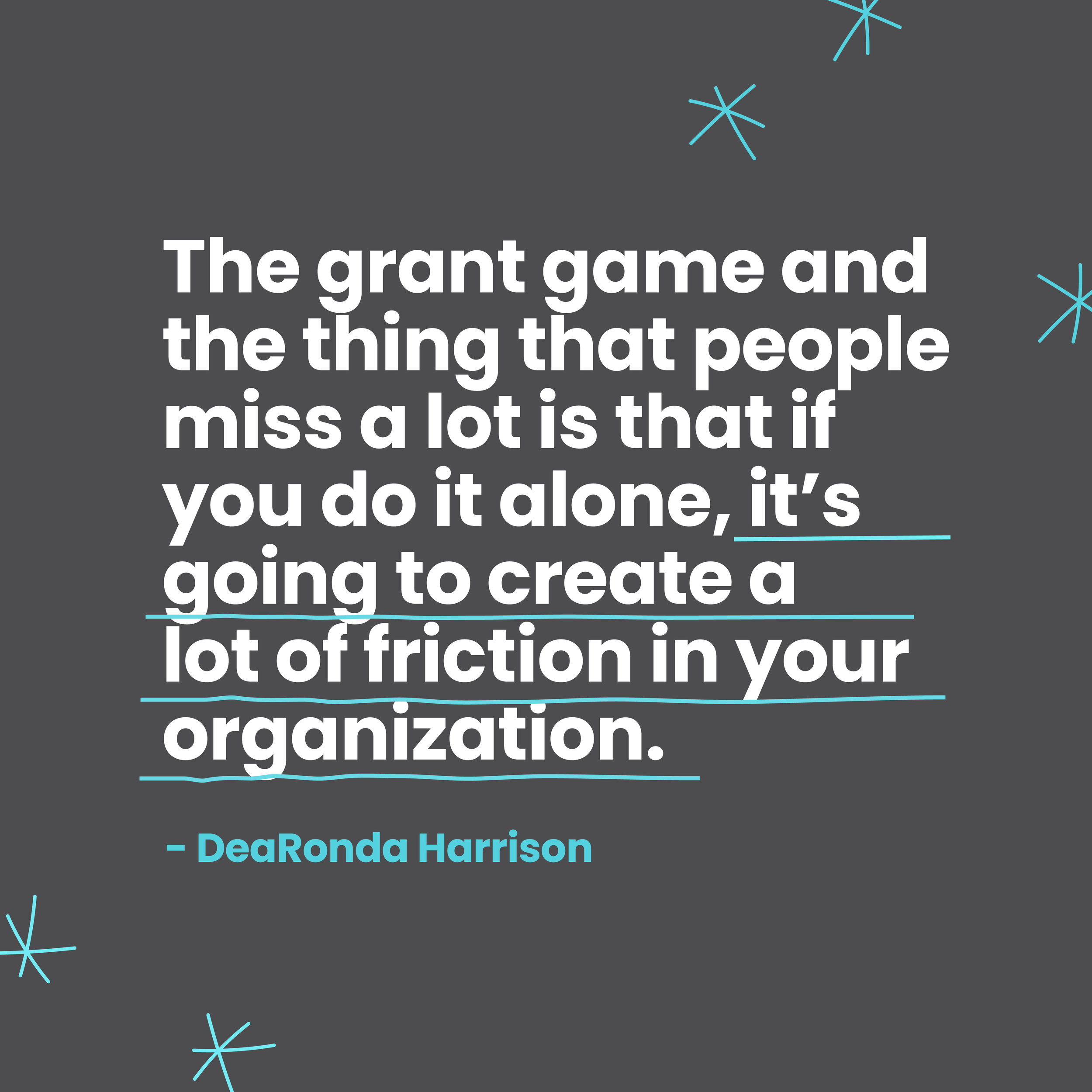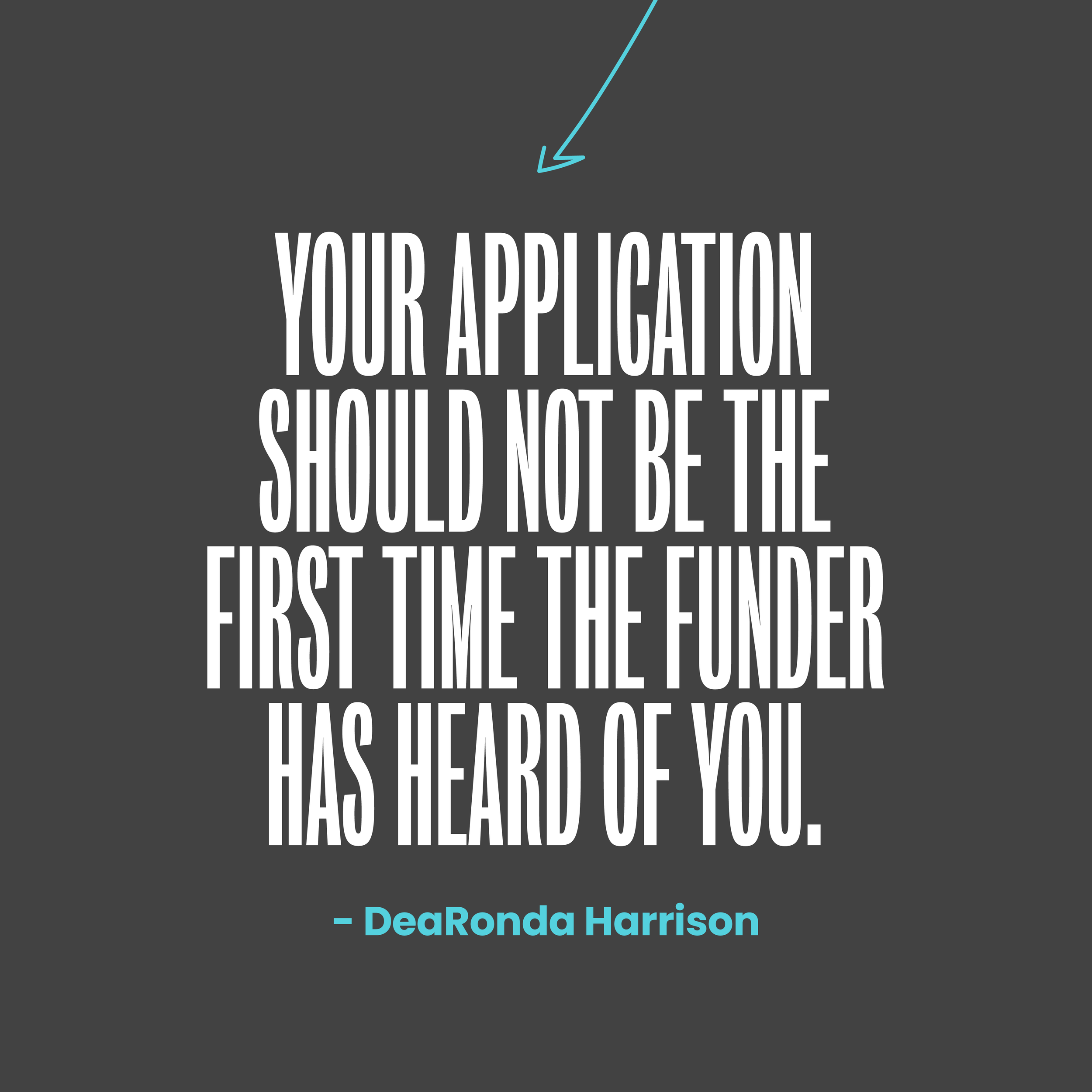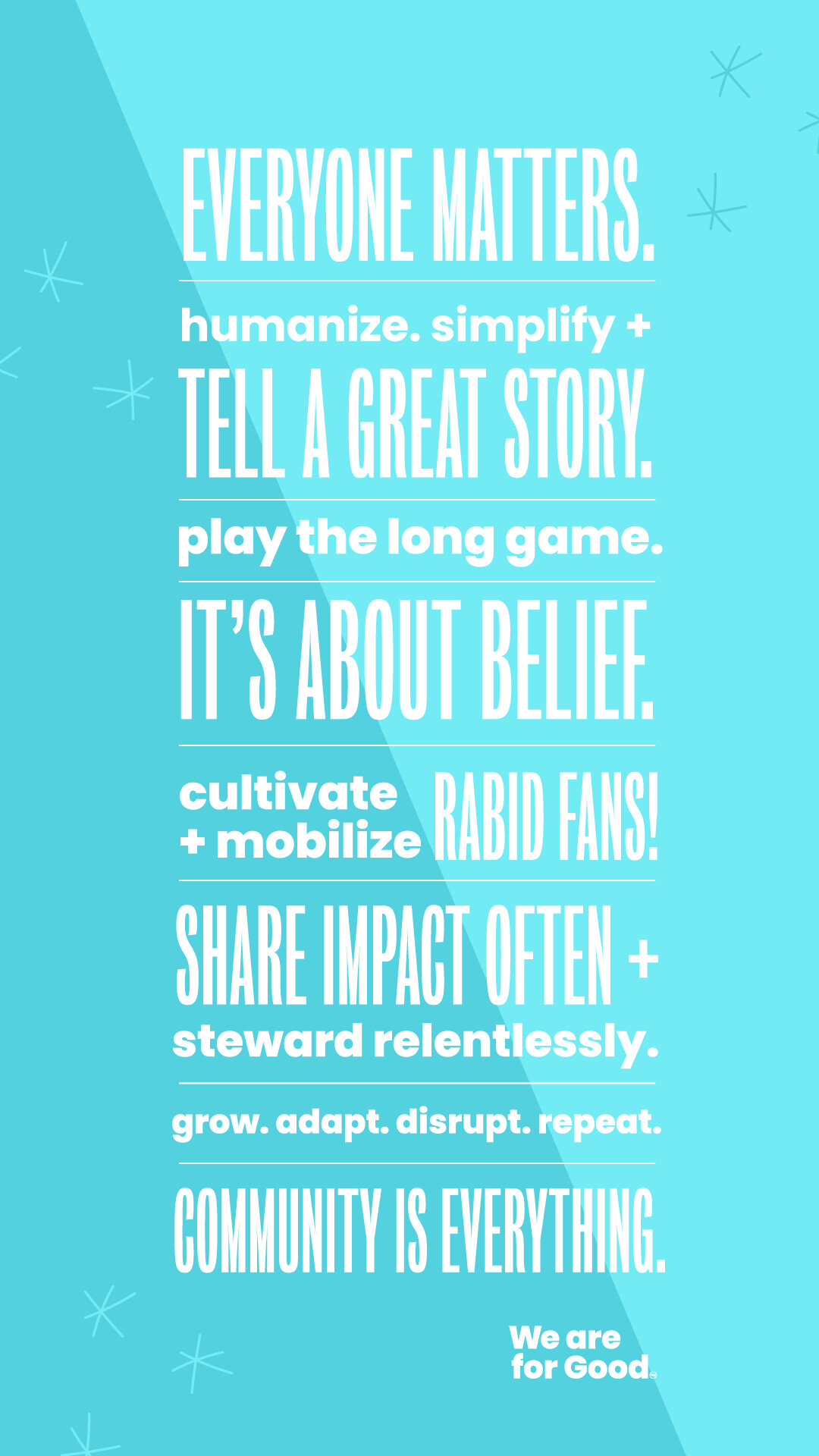247. The Inside Scoop on Grant Writing - DeaRonda Harrison
Listen to this episode
Overview
Meet DeaRonda. This grant writer has been in the biz a long time, and she's bringing the secret sauce and some of her best grant writing tips to this chat. We're talking through research, starting points, Grantwriting 101, and why grants should always be a team sport. 🚨And great news: If you're a minority-led organization, now is a great time to take advantage of existing grant funds!💰
💡Learn:
👆Step-by-step process for submitting grants
👆How to pitch to grant funders
👆Insights into subtle nuances & political landscapes that affect federal funding
👆What grant funders will request and how to get ahead of it
Today’s Guest
DeaRonda Harrison, Grant Writer, June First Firm
“You can be the best writer, you can have the most compelling narratives, you can highlight impact outcomes, and have a strong evaluation metrics for your program, which is what funders like. But it’s important to build relationships.”
Episode Transcript
Download Full Episode Transcript Here
Episode highlights
DeaRonda’s story and journey to where she is today (2:00)
The state of grant writing today (3:45)
Where to start: the research phase of grant writing (5:45)
DeaRonda’s advice around federal grants (7:28)
DeaRonda’s secret sauce and advice to winning grants (11:00)
Low hanging fruit for organizations and advice for how to lean in (15:00)
The connection of storytelling and grant writing (17:00)
External factors and their role in the grant process (19:00)
A powerful moment of philanthropy in DeaRonda’s life (24:00)
DeaRonda’s One Good Thing: Do your one good thing and do it well. (26:00)
powerful quotes
“At this time, there are more opportunities than ever before. There's a lane specifically for smaller nonprofits on those that have like annual budgets of $500,000 or less.” -DeaRonda
“There are more doors opened than ever before. These are smaller nonprofits that may have been shut down in the past. Funders are targeting them, they want to give to them. They're doing great work. And they want to like prop them up to go after these opportunities.” -DeaRonda
“I just tell people to be nosy.” -DeaRonda
“I feel like like the only thing holding us back is scarcity.” -Becky
“I started in federal grants. So I would say that's my strength in grant writing, and, but I do not do them alone.” -DeaRonda
“Just to take the fright out of it, don't do it by yourself. Bring in your program team. They're part of this grant project as well. It's not just the grant writers, they have all to say they're telling you how the programs run. They're the ones are going to tell you how to talk about it. And then of course, it's your job to write it beautifully.” -DeaRonda
“If you're a fundraiser in your writing you if you do it alone, it's going to create some friction in your organization because there's a lot of endpoints.” -Becky
“The secret sauce is the pitch. Long before you put pen to paper or finger to keyboard you have already introduced your nonprofit to grant funders, there has been a minimum of at least one conversation, hopefully two.” -DeaRonda
“You can be the best writer, you can have the best compelling narratives, you can highlight impact outcomes and have a strong evaluation metrics for your program, which is what funders like. But it's important to build relationships.” -DeaRonda
“They're people. People want to hear from people, and they want to know who you are and what you have going on. I believe that is the reason to my success. By the time I start writing a grant that both conversations have already happened.” -DeaRonda
“A nonprofit is a business. Grants is like an extra stream.” -DeaRonda
“This past year at the National Conference, one of the presenters, she called a grant a coupon, instead of you applying funds that you were already going to use to pay for programs and services, you're going to get this coupon to help you discount some of that, because that's essentially what a grant is.” -DeaRonda
“So explicitly state what you're doing the color to it describe the population specifically. So when you mentioned it, I can see these people in my head, I can see these young ladies in my head. So it's all about the pitch and being confident and talking about your organization.” -DeaRonda
“One of the secrets that we do in our federal application is, it's like a blurb before they even start reading your your proposal.” -DeaRonda
“So before they even start reading the proposal, which is pages and pages and pages long, the first thing they see is a story. It is probably no more than four sentences. But it directly gets to the point and gives you an opportunity to paint a picture of who you're talking about.” -DeaRonda
“It's so based on who's in the White House. Who our presidents are, it’s based on their priorities. That's when funding priorities are shift or change.” -DeaRonda
“It's important to understand who's in the administration, what their priorities are, you have to shift and adjust to that you have to be a chameleon in this in this in this grant world, so to speak.” -DeaRonda
“Now, President Biden, a lot of his focus is pandemic prevention and things like that. So it's important to know what the political focus is on, and knowing the high level priorities. You don't have to read the entire budget that comes out of the White House, but just knowing those high level points of priority is critical for this industry.” -DeaRonda
“Yes, we want you to chase grants, but we don't want you to chase only grants, there's so much offering today in the way that people can give like through mobile, and through digital and hybrid events, there's so many different avenues.” -Becky
“I think funders did a great job in responding. When those things happened. It was very inspiring to see on external factors that could affect funding is the biggest one that we're dealing with right now, especially since I've been in this in this world.” -DeaRonda
“You can get on social media and see all these different things that people making money doing this and doing that. But honing in and focusing on your good thing, your one good thing and just doing that well and doing it at a high level at a high effort.” -DeaRonda
connect with dearonda
Rate, Review, & Follow on Apple Podcasts
Are you a fan of the We Are For Good Podcast? Please consider rating and reviewing our show! This helps us serve more do-gooders — just like you — grow their own impact uprising.
First time doing reviewing a podcast? Don’t sweat - it’s super easy! Click here, scroll to the bottom, tap to rate the show with stars, and then click “Write a Review.” We’d love to hear what you loved most about this episode!
While you’re there, if you haven’t done so already, would you consider subscribing to the podcast? We curate inspiring conversations weekly to help you do more for your mission (and the occasional surprise minisode too!) and if you’re not subscribed, you could totally out. Subscribe now!
Join the Good Community!
The We are for good community
This is a safe place for deeper conversations. While we love this podcast, it is a very one-sided dialogue. It is great for starting conversations, but not continuing them. You can find friends, colleagues, and others to champion alongside. We believe community is everything and we wanted to create a place where people could learn and thrive and grow together (and also have a whole lot of fun).
